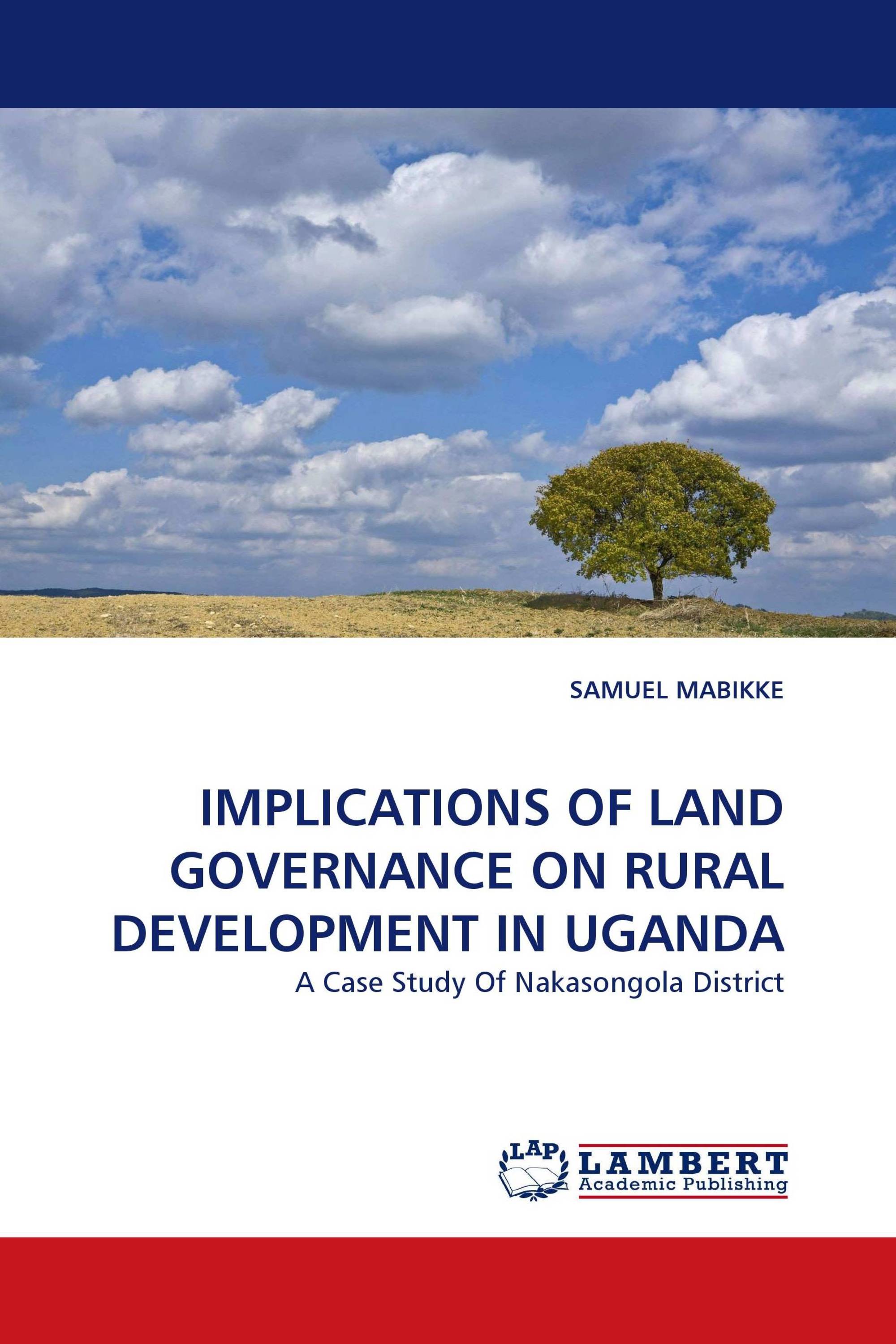IMPLICATIONS OF LAND GOVERNANCE ON RURAL DEVELOPMENT IN UGANDA
A Case Study Of Nakasongola District
LAP Lambert Academic Publishing ( 20.06.2010 )
€ 59,00
Uganda has, since 1990s made enormous progress in reducing poverty, slashing the incidence of poverty from 56 percent of the population in 1992 to 31 percent in 2005. This progress is largely attributed to both the country’s policy reform program on good governance and relative political stability. Despite the reported remarkable progress in good governance and poverty reduction, poverty remains firmly entrenched in the country’s rural areas. About 85% of Uganda’s population depends mainly on agriculture and other land related resources for survival. Although studies on Governance and Poverty have been undertaken before, few studies focused on linking the principles of good Governance to Land Management. None of these studies focused on the implications of Land Governance on Rural Development as a solution for poverty eradication. Corruption in land, Land Tenure insecurity, Land grabbing, favoritism, weak Judiciary and institutions,complex land laws,and violent land conflicts have undermined Development. The study critically analyzed the implications of Land Governance on Rural Development programs in Uganda and suggests recommendations for improving Rural Development in Uganda
Детали книги: |
|
|
ISBN-13: |
978-3-8383-7525-0 |
|
ISBN-10: |
3838375254 |
|
EAN: |
9783838375250 |
|
Язык книги: |
English |
|
By (author) : |
SAMUEL MABIKKE |
|
Количество страниц: |
148 |
|
Опубликовано: |
20.06.2010 |
|
Категория: |
Исследование социальных слоёв |




